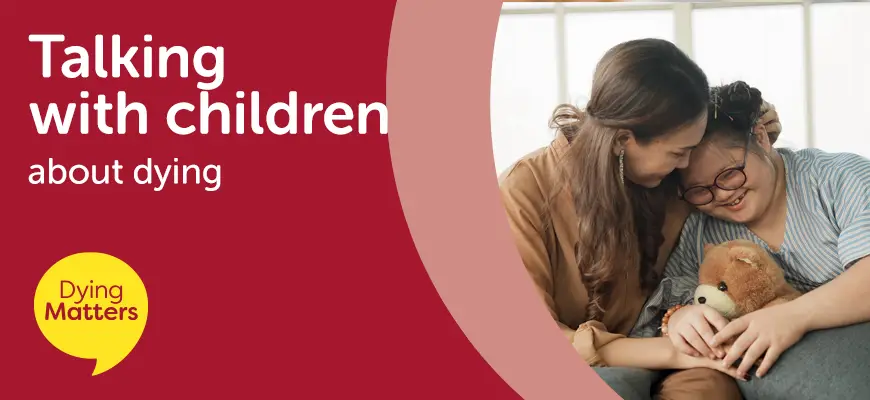
Why it matters
We can’t protect children from death. They see it all the time. When a cat drops a mouse on the doorstep. When they lose a grandparent. On TV.
But one thing we can do is speak with children about death. Having an open conversation and showing we’re comfortable talking about it can stop children feeling scared, confused, alone or even guilty after someone dies. And knowing about things like funerals, burials and cremations before someone close to them dies can make it easier to cope.
How to help children talk about dying
You do not have to plan a big conversation. You can help by telling children you are there to listen. Children will probably want to talk about death.
Try to listen carefully. Let children lead the conversation. You could explain death is part of life. You could use examples from nature. An example from nature is leaves falling from trees. Another example from nature is flowers blooming and dying.
You could talk to children if someone you know dies. You could ask if the child wants to come to the funeral. It can help to let children know what to expect. The child could make a memory box too. A memory box is a box you fill with things that remind you of a person.
A pet dying can help you talk about death. You could ask if the child wants to help bury it. The child could plant some flowers.
There are lots of books that can help you too. There is a list at the Winston’s Wish website winstonswish.org/suggested-reading-list
Tips to talk about death
Children might ask detailed questions. Like ‘What is it like inside a coffin?’ And ‘What does a dead body look like?’ This is totally normal. Try to answer these questions. It is more helpful than ignoring the questions.
We have listed below some other tips that might help.
Listen carefully
Try to understand what the child is saying. It is fine to say you do not know the answer to a question. The child will mostly want you to listen and take them seriously.
Try not to look uncomfortable
If you look uncomfortable, the child may think death is something not to talk about. Try to stick to the point too. A few short conversations might be easier than one long one.
Use direct language
If you say ‘passed away’ it can be more confusing for a child than if you say ‘died’. It is a good idea to check the child has understood you.
Do not be afraid to get emotional
It can help a child if they see you are upset. It can make them see that grief is normal.
Download a pdf of the HospiceUK Talking with children about dying leaflet

Dying Matters is a campaign run by www.hospiceuk.org



